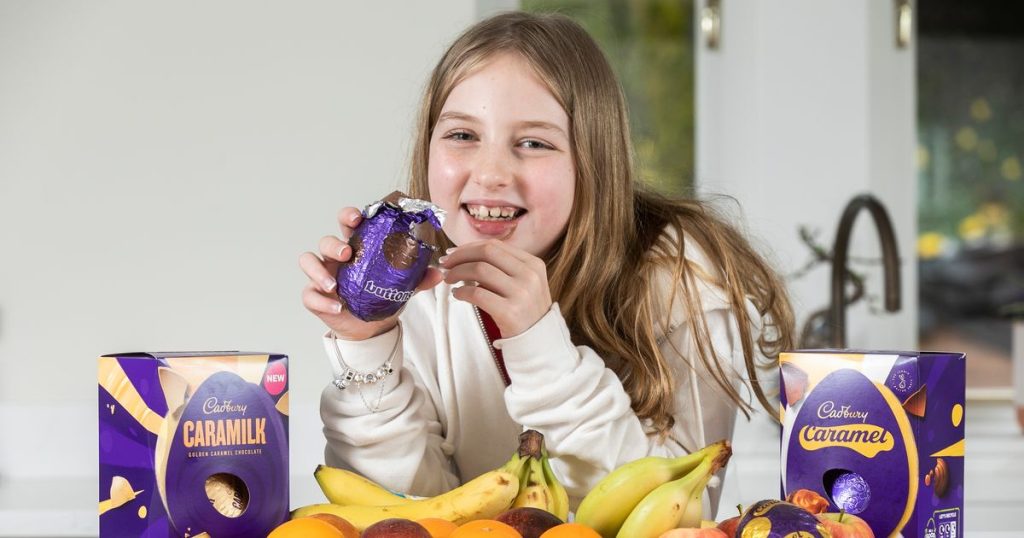Betsy Pearson, a 10-year-old girl from Huddersfield, West Yorkshire, developed a fear of choking after having a conversation with doctors. This fear led her to only consume soft beige foods, as she believed they were safer to eat. She avoided raw vegetables and fruit, and her diet mainly consisted of Shreddies, plain pasta, and other bland options. Doctors initially dismissed her as a fussy eater, but her mother, Amy, suspected something more serious was at play. Betsy’s fear of choking affected her school meals, as she struggled to eat anything outside her limited diet.
Betsy’s eating habits began to change around the age of six, and her fear of choking started to become more pronounced. Amy sought the help of hypnotherapist David Kilmurry, who diagnosed Betsy with avoidant restrictive food intake disorder. Through hypnotherapy sessions, Betsy was able to overcome her fear and try new foods. She was also able to enjoy chocolate for the first time, just in time for Easter. With Kilmurry’s guidance, Betsy participated in various try tests to introduce her to a wider range of foods. She also started taking sandwiches to school, traveled abroad, and ate in restaurants without reluctance or stress.
Amy expressed her happiness with Betsy’s progress and her newfound willingness to try different foods. She recalled how Betsy’s eating habits dramatically changed, as she went from being a baby who would eat anything to a child with a limited and repetitive diet. Amy attributed the onset of Betsy’s eating issues to a specific moment during the Covid lockdown when she was six or seven. Betsy, on the other hand, shared her excitement about trying new things and enjoying foods like yogurt. She expressed her anticipation of eating a chocolate egg during Easter, a previously unthinkable feat due to her fear of choking.
Betsy’s school struggled to provide meals that she would eat, as she continued to stick to her repetitive diet. Her teachers and parents were concerned about her lack of variety in food choices and sought solutions to help her overcome her phobia. With the help of hypnotherapy, Betsy was able to expand her taste buds and begin enjoying a wider range of foods. Her school’s efforts to accommodate her dietary needs were met with success, as she started taking packed lunches and gradually introduced new foods into her meals. As a result of her hypnotherapy sessions, Betsy’s fear of choking subsided, and she could finally enjoy Easter eggs and other colored foods she had previously avoided.
Hypnotherapist David Kilmurry praised Betsy for her progress and collaboration during the sessions. He described her as a “dream to work with” and expressed his pleasure at her newfound ability to eat colored foods, fruits, and vegetables, as well as chocolate Easter eggs. Betsy’s success story serves as a testament to the effectiveness of hypnotherapy in addressing avoidant restrictive food intake disorder and overcoming phobias related to eating. Her journey highlights the importance of seeking help for children with similar eating issues and the positive impact that therapy can have on their quality of life and overall well-being.


